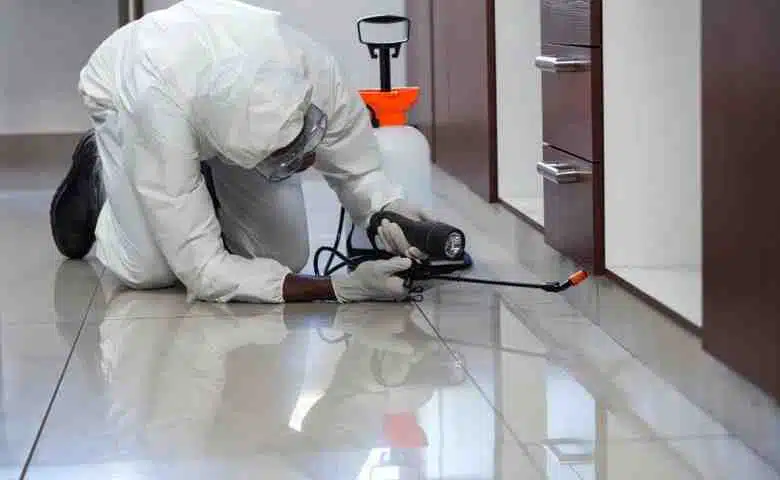In the world of hospitality, creating a **pest-free environment** is vital for ensuring guest comfort and upholding the hotels reputation. Hotels and resorts, as busy venues, are particularly vulnerable to infestations by various pests such as rodents, bed bugs, and cockroaches. Consequently, hotel managers often grapple with the query: what are the most effective guest-friendly pest monitoring methods that can aid in delivering a memorable experience without sacrificing vigilance?
For those in the hospitality sector, the challenge is to enact **pest control strategies** that are both effective and unobtrusive, ensuring that guests remain undisturbed. Therefore, grasping **guest-friendly pest monitoring methods** is essential to uphold the venue's aesthetic appeal and operational efficiency.

Recognizing the Importance of Guest-Friendly Approaches
Hotels are distinctive environments where privacy and subtlety are indispensable. Unlike other business establishments, hotels must present an image of cleanliness and opulence, meaning that overt pest control measures could be detrimental. This is precisely why the adoption of **guest-friendly pest monitoring methods** is essential.
Guest-friendly techniques are designed to minimize disruption, often operating beneath the guests' notice. This involves leveraging technology and thoughtful planning to monitor and manage pests without causing alarm or discomfort to visitors. The goal is to strike a harmonious balance between proactive pest control and maintaining an enjoyable guest experience.
Embracing Technology in Pest Monitoring
The advent of technology in pest monitoring is altering the landscape of how hoteliers mitigate pest risks. A prime example is the utilization of **electronic pest monitoring systems**. These systems allow for real-time detection of pest activity, providing critical data that aids in proactive decision-making. They operate discreetly and effectively, making them particularly well-suited for hotel environments.
For example, Sprague Pest Solutions offers state-of-the-art solutions that incorporate technology into pest control, ensuring that monitoring is efficient while remaining unobtrusive. Such systems are not only advantageous for identifying existing infestations but also for preventing future outbreaks.
Adopting Integrated Pest Management (IPM)
**Integrated Pest Management (IPM)** represents another effective and guest-friendly strategy. IPM prioritizes long-term prevention and control through an array of techniques including biological control, habitat management, and the use of resistant varieties. A key element is monitoring and identifying pests so that action is taken only when necessary, which significantly reduces chemical usage.
As stated in Study.com's pest management lesson, implementing an IPM approach in hotels includes regular inspections and the application of non-chemical methods whenever feasible. This reduces reliance on chemical interventions, fostering a healthier environment for guests.
Enhancing Staff Awareness and Training
Training staff forms a crucial part of guest-friendly pest monitoring. Employees should be equipped to recognize signs of pest presence and comprehend the appropriate steps to handle an infestation. This proactive mindset can help avert minor issues from escalating into more significant problems.
Furthermore, staff training must also cover interactions with guests. Employees should be knowledgeable enough to address any pest-related concerns from guests with confidence and discretion. This reassures visitors while upholding the hotels image of exceptional service.
Selecting Low-Toxicity Products
When chemical interventions are unavoidable, opting for low-toxicity products becomes essential. These products are crafted to be less harmful to people and pets, making them suitable for areas visited by guests. By favoring such eco-friendly options, hotels can ensure that their pest control measures are safe for everyone involved.
As highlighted by Abell Pest Control, adopting environmentally sensitive pest control techniques not only ensures safety but also resonates with the increasing trend towards eco-conscious practices within the hospitality sector.
The Importance of Regular Monitoring and Documentation
Consistent monitoring and documentation play a crucial role in effective guest-friendly pest management. This entails regular inspections and routine maintenance of pest control equipment to ensure optimal functionality. Keeping comprehensive records of pest activity and control measures aids in more effective future planning and response.
Moreover, ongoing documentation encourages transparency and accountability, ensuring that all pest control actions are recorded and available for review when necessary.
Utilizing Professional Pest Control Services
While in-house pest management is crucial, enlisting professional pest control services can offer an extra layer of expertise and reassurance. These services come equipped with specialized knowledge and technology that can more effectively address pest problems in a discreet manner.
Numerous pest control firms provide customized solutions tailored to the specific needs of hotels. By partnering with experienced professionals, hotels can maintain a pest-free environment with minimal disturbance to guests.
Conclusion
In conclusion, understanding what are guest-friendly pest monitoring methods is vital for any hotel looking to provide an exceptional guest experience. By embracing technology, implementing IPM, educating staff, using low-toxicity products, and collaborating with pest control experts, hotels can uphold a discreet yet effective pest management strategy.
For further insights into pest control technologies, consider exploring this informative article on Hotel Management.

FAQ
What are the benefits of using electronic pest monitoring systems?
Electronic pest monitoring systems deliver real-time insights about pest activity, enabling hoteliers to make proactive decisions. They function discreetly and efficiently, helping prevent infestations without alarming guests.
How does Integrated Pest Management (IPM) function in hotels?
IPM focuses on preventative measures in hotels, utilizing a combination of techniques such as biological controls and habitat management. It emphasizes monitoring and identifying pests to limit chemical interventions.
Why is staff training crucial in pest management?
Staff training is essential as it empowers employees to recognize signs of pests and address guest inquiries discreetly. This proactive approach can prevent smaller pest issues from developing into larger, more significant problems.
Furthermore, hotels can enhance their pest management strategies by exploring methods for rodent detection, leveraging data from pest monitoring, and learning best practices for responding to pest sightings and monitoring mice in their establishments. Additionally, understanding how pest monitoring can reduce expenses can be invaluable.
